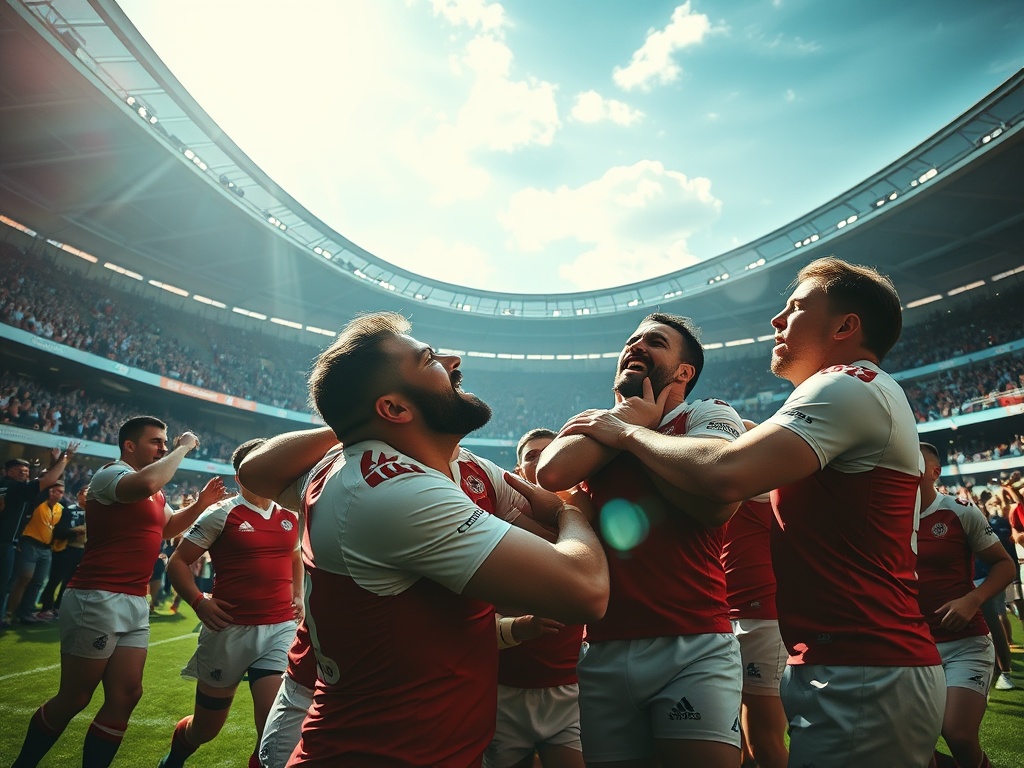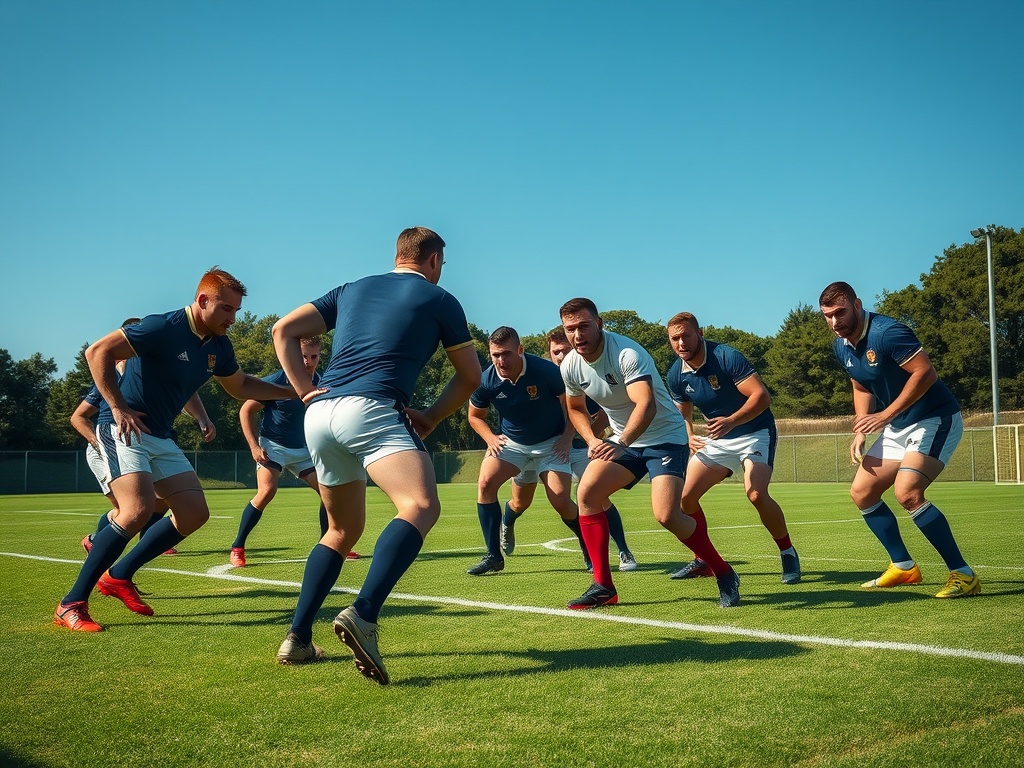England Scrapes Past Scotland in Narrow Victory

TWICKENHAM STADIUM — A palpable sense of frustration hung in the air as England’s home crowd voiced their discontent, despite the team holding onto a slim lead. In a familiar scene from the Steve Borthwick era, England managed to secure a 16-15 victory over Scotland, yet their performance left much to be desired. Just two weeks prior, England had celebrated a thrilling 26-25 win against France, showcasing their potential with four tries. In stark contrast, their latest outing allowed Scotland to outscore them three tries to one, with England lucky to have even crossed the line once, as the grounding for Tommy Freeman’s early score was far from clear.
If the essence of rugby lies in the unpredictable nature of its outcomes, this match served as a bitter pill for the Scottish side, who are known for their flair but often find themselves on the losing end, especially in crucial encounters.
As for England, how did they react to a win that felt less than convincing? Captain Maro Itoje offered a tempered reflection, stating, “It wasn’t necessarily pretty.” He acknowledged the challenges posed by Scotland, adding, “I am just very proud the boys stuck in there and we found a way to win.”
England’s attempts to answer Scotland’s relentless pressure primarily involved a series of tackles and kicks that fell flat, leading to growing discontent among the Twickenham crowd. The spectators, known for their enthusiastic support, began to voice their displeasure, particularly as scrum-half Alex Mitchell repeatedly kicked the ball away in the first half. The atmosphere soured further in the second half as fly-half Fin Smith resorted to executing diagonal kicks from center field, much to the crowd’s chagrin.
“We don’t necessarily want to play the way we’ve played today,” Borthwick commented, reflecting on a match where Scotland dominated possession with 59 percent of the territory. “We want the ball in hand, to move the ball. We have a lot of creative talent, but Scotland are then trying to stop you doing that.”
Smith’s tactical decisions drew skepticism, particularly as he targeted Scotland’s formidable back-three duo of Blair Kinghorn and Duhan van der Merwe, both of whom excel in aerial contests. The intent may have been to allow England’s own back three, comprising Freeman, Ollie Sleightholme, and Marcus Smith, to capitalize on any loose balls, but this strategy was largely ineffective.
Mitchell’s box-kicking failed to resonate with the crowd (Photo: Getty), and as the game progressed, it became evident that Smith was struggling to find a way through Scotland’s tight-knit defense. The match evolved into an archetypal arm-wrestle in the midfield, contrasting sharply with the more free-flowing play allowed by the French in Smith’s previous start with England.
Perhaps Marcus Smith would have been better suited to the fly-half role given the circumstances, rather than observing from the full-back position. This decision illustrates the delicate balance Borthwick is navigating as he seeks to optimize the team’s performance.
When England finally attempted a more adventurous play, Ollie Lawrence made a promising line break, only for Marcus Smith to misfire on the execution, with Lawrence’s ambitious pass going into touch. This misstep came just before halftime, and shortly after the break, Henry Slade chose to cut inside when a clear overlap was present.
Overall, it was a deeply disappointing display in attack, as Itoje succinctly noted, “We need to find ways to spend more time there [in the opponents’ half].”
On a positive note, England is not ignoring these pressing issues, and it is undoubtedly preferable to confront such challenges while still securing victories, however narrow they may be. With Italy and Wales on the horizon, England has a chance to clinch the title, should Ireland falter against either France or Italy.
After reclaiming the Calcutta Cup, which had eluded them for four years, England’s journey is far from over. Yet, the overarching perception remains unchanged. The team is still in a transitional phase, losing several key players to retirement and clubs abroad. Their path to success on this occasion revolved around a collective effort, as Borthwick described it, to “run hard for each other” while hoping for a favorable outcome on the scoreboard after 80 minutes.




